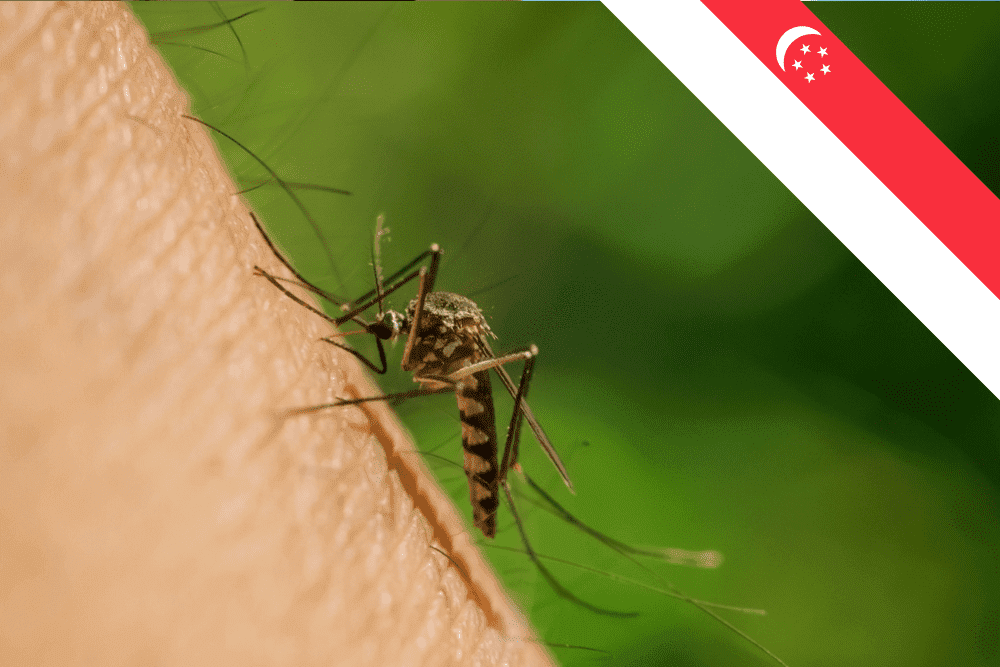Surge in Dengue Cases in Singapore in 2024
Dengue cases in Singapore in 2024 have surged past 10,000, exceeding the total infections for 2023. This year, the National Environment Agency (NEA) recorded 10,421 cases by the end of July. The rise in dengue cases in Singapore in 2024 is a significant public health concern, with weekly numbers remaining consistently high.
Weekly and Cumulative Dengue Cases in Singapore in 2024
The week ending 27 July 2024 saw 311 cases, a significant increase of 75 cases compared to the previous week.
The cumulative total for the first 30 epidemiological weeks of 2024 stands at 10,421 cases. Detailed weekly data show varying numbers: from 297 cases in week 25 to a peak of 327 cases in week 27, indicating persistent and fluctuating transmission rates.
Active Dengue Clusters and Transmission
As of late July 2024, there are 71 active dengue clusters in Singapore. Thirteen of these clusters are on red alert, indicating 10 or more cases each. Significant clusters include a 115-case cluster at Jurong West Avenue 1/Street 42 and a 412-case cluster at Gangsa Road.
The NEA has reported a high Aedes aegypti mosquito population, with 4,800 mosquito breeding habitats detected from April to June 2024. This high mosquito population contributes to the rapid transmission of dengue cases in Singapore in 2024.
Dengue Virus Serotypes and Immunity
Singapore is currently experiencing the circulation of four dengue virus serotypes. Dengue virus serotype 2 (DENV-2) has been predominant since September 2023. Immunity levels among the population for all serotypes remain low, raising the risk of future outbreaks. The persistent presence of all these serotypes highlights the ongoing threat posed by dengue cases in Singapore in 2024.
Prevention Measures for Dengue Cases
The NEA urges the community to adopt preventive measures to curb dengue transmission. Residents should perform the ‘B-L-O-C-K’ steps to eliminate mosquito breeding sites:
- Break up hardened soil
- Lift and empty flowerpot plates
- Overturn pails and wipe their rims
- Change water in vases
- Keep roof gutters clear and place BTI insecticide inside
Individuals in dengue clusters should also follow the ‘S-A-W’ steps for personal protection:
- Spray insecticide in dark corners around the house
- Apply insect repellent regularly
- Wear long-sleeve tops and long pants
Collective community action is crucial to manage dengue cases.
Symptoms and Medical Advice for Dengue Cases
Those experiencing symptoms suggestive of dengue, such as sudden fever, severe headache, joint pain, and skin rashes, should seek medical attention promptly. Early diagnosis and management are crucial in preventing severe outcomes and further transmission.
Individuals diagnosed with dengue should use insect repellent to avoid mosquito bites and reduce the spread of the virus. The continued vigilance is vital in managing dengue cases.
References
- Qing, A. (2024, July 24). Over 10,000 dengue cases so far in 2024, exceeding total number of infections in 2023. The Straits Times. https://www.straitstimes.com/singapore/health/over-10000-dengue-cases-so-far-in-2024-exceeding-total-number-of-cases-in-2023

